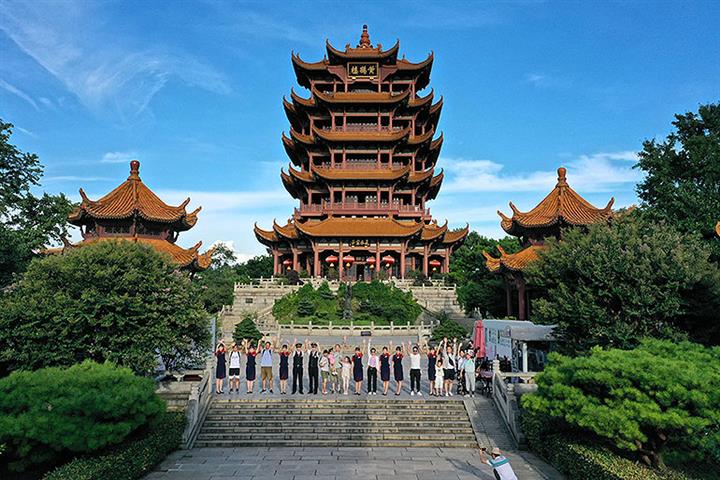 Wuhan to Issue USD11.6 Million in Vouchers to Aid Ailing Tourism Sector
Wuhan to Issue USD11.6 Million in Vouchers to Aid Ailing Tourism Sector(Yicai Global) Aug. 25 -- Wuhan, once the center of the Covid-19 pandemic, is to distribute CNY80 million (USD11.6 million) worth of spending vouchers to residents in a bid to boost its struggling tourism industry, hard hit by the fallout from the virus.
Wuhan, the capital of central Hubei province, will also offer subsidies to cultural and tourism firms as well as fee reductions, the local government said in a document published yesterday. It will make sure banks don't withdraw loans they have lent to these firms.
The novel coronavirus pandemic broke out just before the Chinese New Year holiday, bringing the year's peak tourism season to a grinding halt, a branch manager at the Hubei Hailv Bestone International Travel Service told Yicai Global. His branch was forced to close and only reopened on July 20. Since then it has had takings of less than CNY100,000 (USD14,473), he added.
"While the local government subsidies are merely a drop in the bucket compared with the losses suffered, they are better than nothing,” the manager said. "We will be lucky to break even this year, and the main goal is survival."
Wuhan will also give each tour guide a monthly supplement of between CNY500 (USD72) and CNY1,000 for the next six months. The allowance will come in useful, tourist guide Chen Li said, who didn’t lead any tours for six months until Aug. 10, and before that was making a living by selling hometown specialties on social media app WeChat.
Wuhan Sante Cableway Group, the only listed tourism company in Hubei province, reported zero revenue between Jan. 27 and Feb. 24 and is expected to lose between CNY100 million (USD14.5 million) and CNY120 million in the first half.
"We were able to secure CNY10 million (USD1.4 million) in interest-free loans and another CNY100 million in subsidized loans,” an executive told Yicai Global. “Our CNY360 million private placement scheme was also approved by regulators," he added. The company runs various scenic areas which are taking part in the government’s admission-free campaign, which is expected to run for the rest of the year.
Editors: Tang Shihua, Kim Taylor